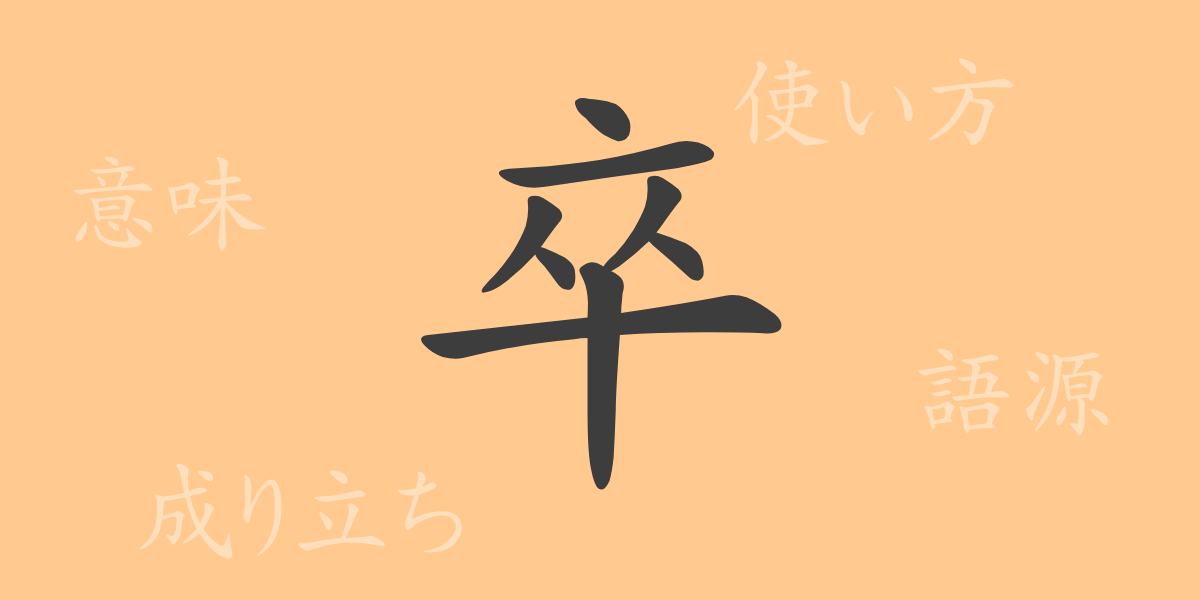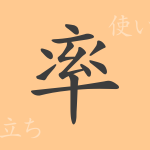The Kanji embedded within Japanese culture encapsulate deep meanings and histories. “卒” (ソツ)(シュツ)(にわかに)(おわる)(おえる) (sotsu)(shutsu)(niwakani)(owaru)(oeru), commonly seen in everyday life, often marks significant life milestones such as graduations and new beginnings. This article delves into the meanings, origins, and uses of “卒”, exploring its charm through various idioms and phrases that resonate with many aspects of our lives.
Origin of “卒” (sotsu)
The Kanji “卒” originated from ancient Chinese, initially depicting an infantry soldier marching. This pictograph evolved to embody various meanings over time. In Japan, it is widely used in the context of educational achievements, particularly signifying ‘graduation’.
Meaning and Usage of “卒” (sotsu)
“卒” primarily means ‘to finish’ or ‘end’, and also retains its ancient meaning of ‘soldier’ or ‘infantry’. It is commonly used in terms like ‘graduation’ (卒業) to denote the completion of academic pursuits.
Readings, Stroke Count, and Radical of “卒” (sotsu)
The Kanji “卒” offers multiple readings and features:
- Readings: On’yomi “ソツ” (sotsu), “シュツ” (shutsu), Kun’yomi “にわかに” (niwakani), “おわる” (owaru), “おえる” (oeru)
- Stroke Count: 8 strokes
- Radical: “十” (じゅうぶ) (jūbu)
Phrases and Proverbs Using “卒” (sotsu) and Their Meanings
Various idioms, phrases, and proverbs feature “卒”, each enriching the Japanese language:
- 卒業 (そつぎょう) (sotsugyou): Refers to the completion of an educational institution.
- 卒業生 (そつぎょうせい) (sotsugyousei): A person who has completed their education at an institution.
- 卒然 (そつぜん) (sotsuzen): Means suddenly, describing something that happens abruptly.
- 卒倒 (そっとう) (sottou): Refers to fainting or collapsing suddenly.
- 卒なく (そつなく) (sotsunaku): Smoothly or without hindrance.
Conclusion on “卒” (sotsu)
The Kanji “卒” is steeped in history, shaping its use in modern Japan across various contexts. From marking the end of education with ‘graduation’ to conveying urgency or transitions in life, its applications are diverse. Understanding Kanji like “卒” deepens our appreciation of the richness of the Japanese language, revealing the profound cultural and historical layers embedded within.

























